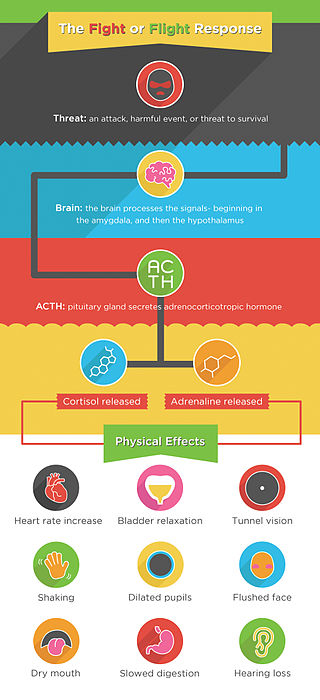Don’t Stress over Stress
Everywhere you look these days, you see different ways to ‘avoid’ stress. This may sound strange to most, but stress is actually good for you. How you manage it is where the problem lies. Stress is a naturally occurring response that all of us possess, but ultimately need in order to survive. How we handle stress and utilize it’s impact optimally is what we need to embrace.
 To appreciate why massage is so effective in fighting stress, it is important to understand what is known as the stress response. Stress begins when demands are placed on you. In your mind you evaluate whether or not those demands are threatening in any way, either physically or psychologically. If your brain decides that there is a possibility of harm, it initiates a stress response. This response is also called a fight or flight response because it causes the same bodily changes that allowed our ancient ancestors to fight or flee from predators.
To appreciate why massage is so effective in fighting stress, it is important to understand what is known as the stress response. Stress begins when demands are placed on you. In your mind you evaluate whether or not those demands are threatening in any way, either physically or psychologically. If your brain decides that there is a possibility of harm, it initiates a stress response. This response is also called a fight or flight response because it causes the same bodily changes that allowed our ancient ancestors to fight or flee from predators.
All the physiological changes that happen in your body with this response occur for one reason only: To prepare your body for physical action. Your muscles tense in preparation for activity. Your heart rate and blood pressure increase to get blood to your muscles. To deliver oxygen to your muscles, your breath becomes quick and shallow. Your digestive and reproductive systems shut down to conserve energy. Hormones are released to keep you awake and alert. Fats and sugars are released into your bloodstream for energy.
Unfortunately, fighting or fleeing is rarely useful for dealing with most stresses we commonly face, like money worries, relationship problems, or troubles with co-workers. And because you don’t have a physical outlet, the stress, in a sense, builds up in your body.
Your body and mind can’t slow down and unwind. Over time, you become caught in a self-perpetuating cycle of stress in which you become less and less able to relax. Tension turns into chronic headaches, or perhaps neck, shoulder and back pain. You may not be able to sleep well. You never seem to feel rested. You constantly feel tired and have little energy to deal with problems effectively. You may also find that your threshold for handling stress is reduced. It becomes increasingly difficult to cope with even small stresses. Even taking time for recreational activities can seem burdensome.
Massage to the rescue
When you’re under severe or chronic stress, massage can be a fast and effective way of breaking the vicious stress cycle. Massage triggers a relaxation response. This response counters the stress response and helps your body restore its balance.
As the massage progresses and the relaxation response kicks in you’ll find that your breathing deepens. Your heart rate and blood pressure decrease. Muscles start to relax as tension is gently kneaded out of your muscles. Painful sensations gradually subside. Your mind is also affected as you focus on the pleasant sensations instead of your worries. Your feelings of anxiety decrease and your mood improves, possibly through the release of hormones called endorphins.
Although the relaxation effects of massage are immediate, the real benefits come when you use massage on a regular basis. Research has demonstrated that as you get more frequent massage, the effects become more pronounced and more long lasting. Repeatedly experiencing the deep relaxation with massage helps you retain the feeling of relaxation through your daily activities. Massage also makes you more aware of sensations in your body allowing you to notice more subtle signs of stress and tension. Heed these early warning signs and you can take control of your stress before it takes over your life.
Of course massage is not the only way to manage your stress. I am of course bias to this method. However, I am also not naïve to think that massage is right for everyone nor is it easily attainable. Ultimately, compassionate touch is profound at reducing stress, but so is sipping some coffee and petting your dog (a personal favorite of mine). In the end, to truly combat stress is to embrace the fact that it is inevitable, unavoidable and a necessary part of everyday life. Excepting this reality along with understanding the effects it has within you will allow you to accept it as a part of your life rather than seeing it as an unwelcomed neighbor who never leaves.
